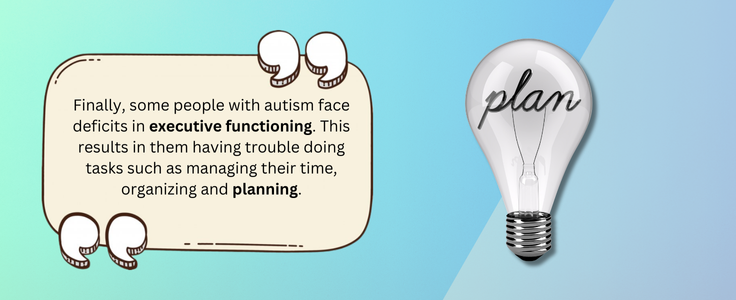Can People with Autism Live Independently?
There are many ways in which people with autism spectrum disorder (ASD) are affected by their neurodevelopmental disorder. While there is certainly a wide range of symptoms, and the severity of those symptoms, nearly all people on the autism spectrum experience some challenges that their neurotypical peers do not.
Autism is commonly associated with deficits in social interactions and communication, along with restrictive interests, repetitive behaviors and/or social sensitivities. The severity of these symptoms can range quite significantly from one person to the next, which ultimately determines how well a person might function in certain areas.
One of the biggest questions parents have when their child is diagnosed with autism is whether they’ll be able to live independently. The answer, of course, depends on a number of variables, but the fact is that a person’s ASD diagnosis in and of itself doesn’t prevent them from living a happy, healthy, fulfilling and independent life.
Below, we’ll discuss whether people with autism can live independently and what some of the challenges are that they might face in doing so.
Table Of Contents
How Does Autism Affect an Individual?
As mentioned, people who are on the autism spectrum face many challenges due to their disorder. Many studies have shown that the autistic brain processes information differently than the neurotypical brain, and that can exhibit itself in many ways.
For one, people with autism often face deficits with communication and social interaction. They may not fully understand communication, for example, because they have trouble accurately interpreting nonverbal cues such as facial expressions, body language and tone of voice.
They also may feel anxious in social situations, and prefer to be alone as a result.
Many people with ASD also face sensory sensitivities. This means they might become easily overwhelmed, stressed and/or anxious when they encounter bright lights, loud noises, certain smells or particular textures.
They might also have difficulty identifying, understanding and regulating their emotions. This could cause them to manage stress in different ways, such as self-stimulatory behaviors that could become harmful in some situations.
Finally, some people with autism face deficits in executive functioning. This results in them having trouble doing tasks such as managing their time, organizing and planning.

What Roadblocks Do People with Autism Face in Living Independently?
As you can see, the challenges laid out above could have a direct effect on whether a person with autism can live independently.
A large part of living independently revolves around the ability to manage your emotions and adapt to different environments. People who have extreme sensory sensitivities, therefore, might find it hard to live independently, as it could prevent them from going into any environment that is foreign to them and, as a result, they can’t control.
Even familiar environments such as school and work could become overwhelming if they aren’t able to properly manage their emotions.
To live independently, people also need to be able to properly plan. This includes everything from preparing meals to paying bills.

If a person struggles with planning, for example, they might not be able to make a grocery list, obtain the necessary items to make food and/or have enough time to actually prepare a meal.
This is a skill that many people take for granted, but it can have a huge effect on one’s ability to live independently.
The biggest factor in whether a person with autism can live independently is whether they’re able to handle daily living tasks. In addition to eating, getting dressed, going to work, bathing and other necessities, people with autism need to be able to identify when they need support as well as to actually get that support.
Having the appropriate access to things such as therapies, support services and even general overall healthcare can go a long way in determining whether a person with ASD can live independently.
How Can a Person with Autism Learn to Live Independently?
From a young age, children on the autism spectrum can be taught new skills and learn how to modify certain behaviors so they have a better chance of living independently. Again, a big factor in this is how severe a person’s ASD is, which could control their ability to live without significant daily support.
One of the main goals of applied behavior analysis, or ABA therapy, is to empower children with ASD to live independent lives. ABA therapists do this in a number of different ways, helping them build the social, communication and daily life skills they often struggle with, while also modifying behaviors that could stand in the way of independent living.
Blue Gems ABA Teaches Children with ASD to Live Independently
Whether a person with ASD can live independently or not depends on how severe their autism is. Those who are significantly affected by the neurodevelopmental disorder may need constant, daily attention and support.
There are others, though, who can live independently without this intensive support.
At Blue Gems ABA, our goal is to support children with ASD and help them live happy, healthy, fulfilling and independent lives. By administering ABA therapy, we help them gain the skills they need to do this, while also modifying certain behaviors that are harmful to them.
To learn more, please contact us today.




